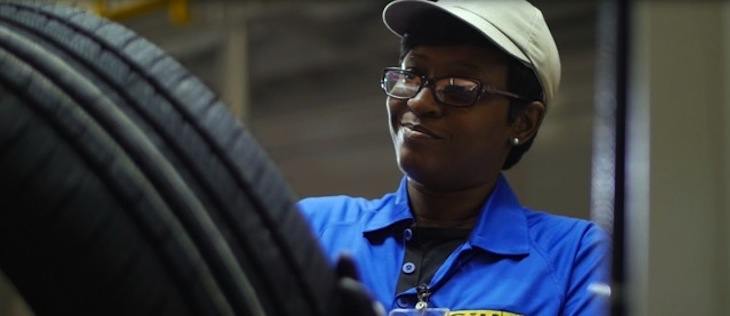Wal-Mart supplier Giti Tire to create 1,700 new jobs at U.S. tire factory
by October 5, 2017 5:13 pm 998 views

Singapore-based Giti Tire said its first tire U.S. manufacturing operation will be in a 1.7 million square-foot facility in Richburg, S.C., and is expected to provide several 100,000 units of Dextero branded tires for Wal-Mart Stores for the remainder of this year. The investment of $560 million is expected to create 1,700 new jobs over the next decade.
The company said Wednesday (Oct. 4) it will ramp up production in the S.C. facility to several million units next year, with plans to add more passenger car and light truck sizes in the future. This project is tied to Wal-Mart Stores’ support of new U.S. manufacturing jobs by investing an additional $250 billion in products made in the U.S. by 2023, which is decade long commitment.
“Our investment in this facility and its workforce demonstrates our firm commitment to North American customers,” said Enki Tan, chairman of Giti Tire. “Chester County’s extensive infrastructure network, proximity to a major metropolitan area, and commitment to a highly skilled workforce will support the company’s needs and growth for many years to come.”
The Boston Consulting Group estimates Wal-Mart’s initiative to support U.S. manufacturing will create 1 million new jobs. BCG has been an advocate for Wal-Mart’s U.S. Manufacturing agenda estimating a potential to recapture about $300 billion in consumer goods being imported. Some of those categories include include furniture, cookware and sporting goods.
Harry Moser, founder of the Reshoring Initiative, has said previously more manufacturing jobs are returning to the U.S. than going offshore. The combined reshoring and foreign direct investment (FDI) trends grew by more than 10% in 2016, adding 77,000 jobs (tying the 2014 record) and exceeding the rate of offshoring by about 27,000 jobs. The 2016 results bring the total number of manufacturing jobs brought back from offshore to more than 338,000 since the manufacturing employment low of February 2010.
“The future state of U.S. manufacturing depends substantially on our success in reducing, rather than further increasing, our approximately $700 billion goods trade deficit, excluding petroleum,” Moser noted in a recent blog. “That deficit, after adjustment for price differences, equals about 40% of actual U.S. Manufacturing output, about 5 million manufacturing jobs at current U.S. productivity levels.”
Wal-Mart has said its initiative is a decade-long process, and while there have been challenges with some products and category lines, the company is pleased with the progress it’s making working with suppliers over the past four years.
“By investing in products that support American jobs, we are able to bring new products to our shelves that our customers want and new jobs to the communities we serve,” said Greg Foran, president and CEO, Walmart U.S., who was also at the opening ceremony. “Our customers have told us that second to price, where products are made influences their purchase decisions.”
In July, Wal-Mart executives outlined the new policy roadmap identifying the highest impact policy barriers and proposed specific policies to accelerate and grow U.S. manufacturing. The key barriers according to Wal-Mart include workforce, coordination and financing, regulation, and tax and trade and proposes specific policies.
